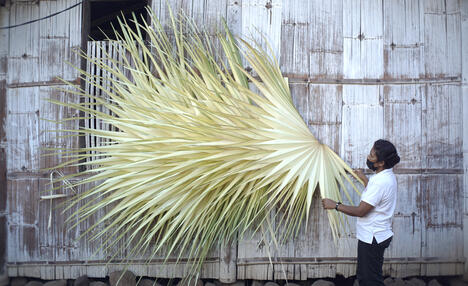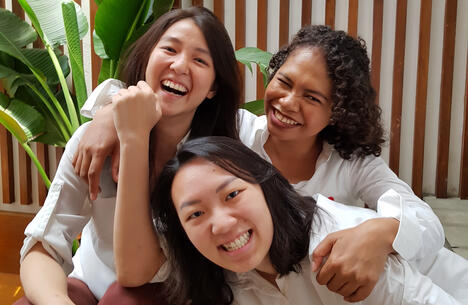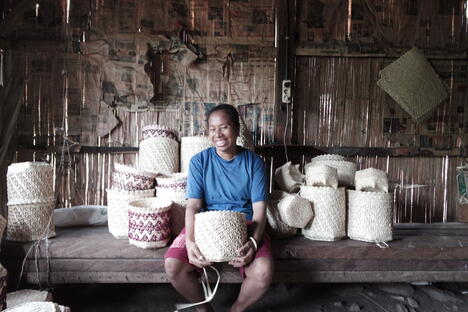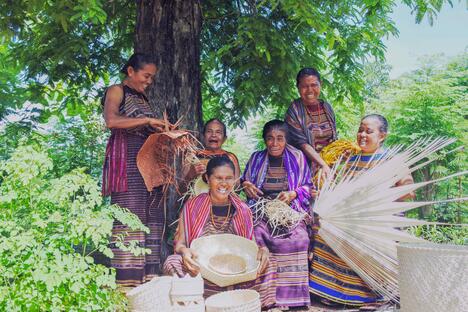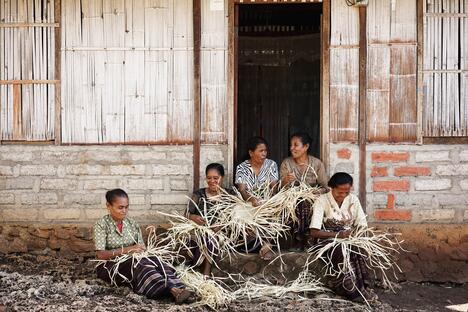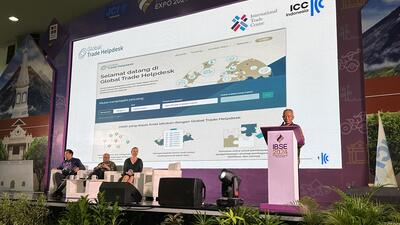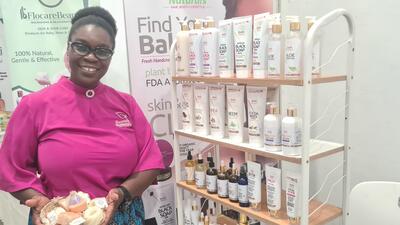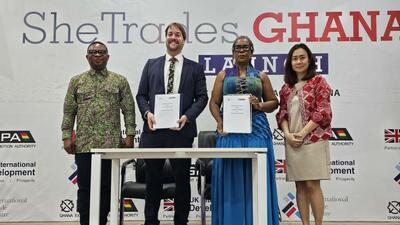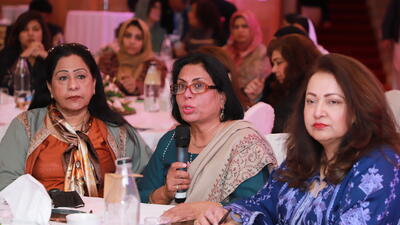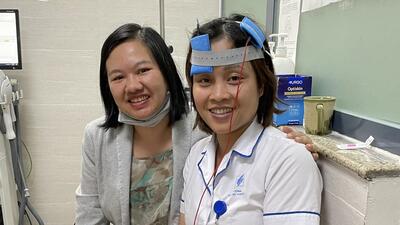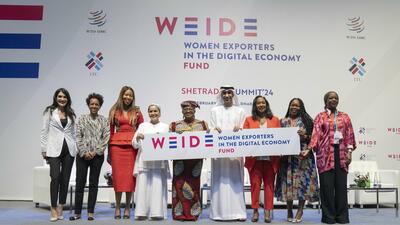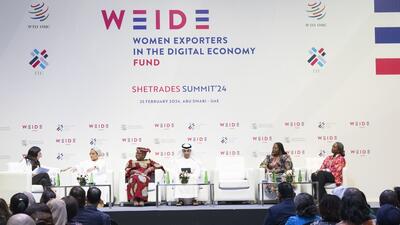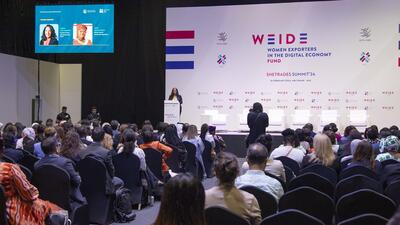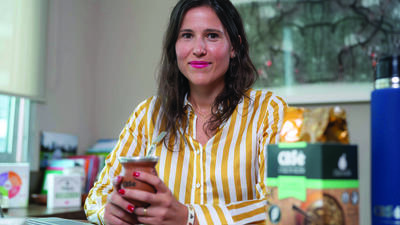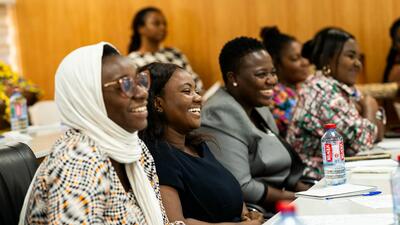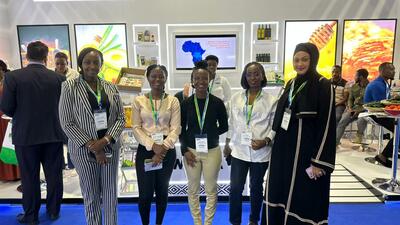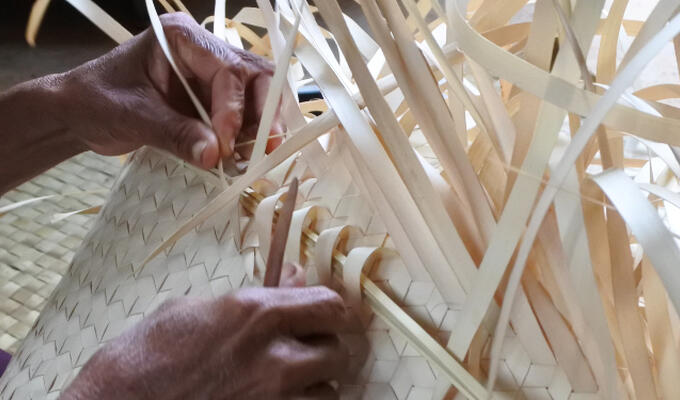
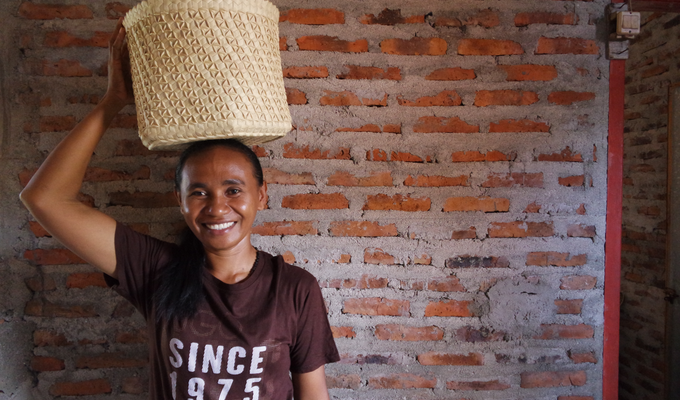
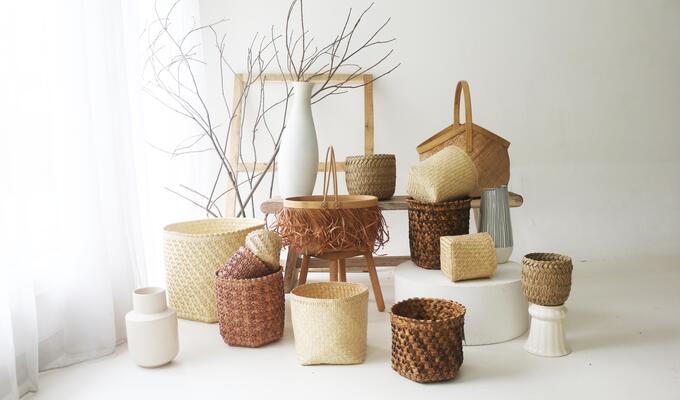
Empower women. Promote culture. Improve lives in Indonesia.
Seven years ago, three young women created social enterprise Du Anyam to ensure additional income for women communities in rural Indonesia. Their business has reached an impact far beyond their imagination.
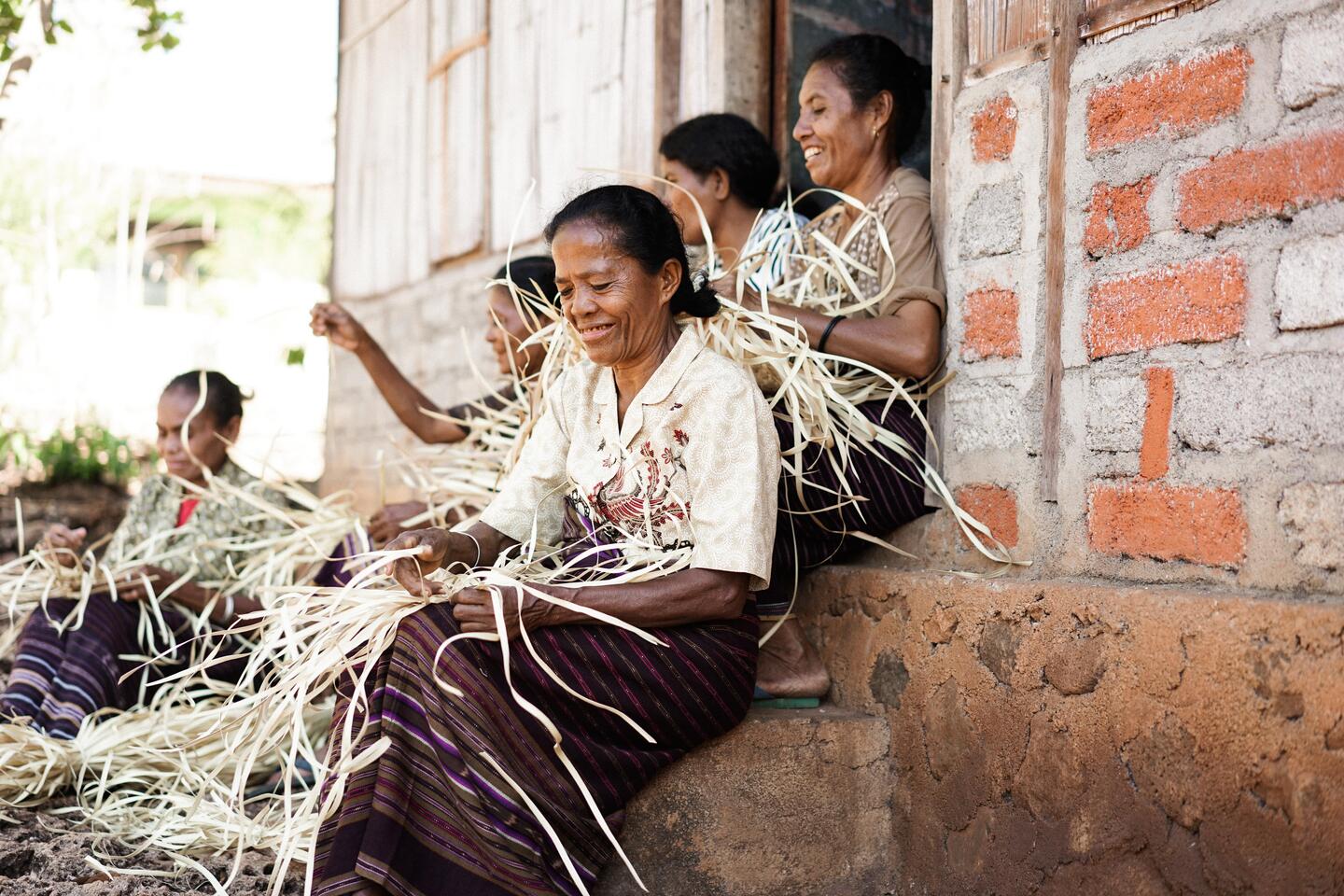
As is the case in many rural areas throughout the world, the countryside in Indonesia is marked by traditional small-scale farming and subsistence agriculture.
In the remote region of East Flores, for example, women provide for their families as most men are migrant workers, leaving the island behind in search of jobs. Even though they send money back to their families, cash is hard to come by during the dry season. In 2018, the rural poverty rate was still at 13.2%, according to the World Bank.
Azalea (Ayu) Ayuningtyas, one of the founders of Du Anyam , tells me that otherwise, they would need to borrow money, and later pay with their harvest which creates a cycle of poverty and hunger, leading to famished families. Additional cash is crucial for survival, she says.
Du Anyam means “Mothers weaving”
This is how the idea behind “Du Anyam” was born.
Ayu and her friends Melia Winata and Hanna Keraf knew of the women’s tremendous talent in weaving. They founded Du Anyam to preserve the century-long tradition of weaving with palmyra leaves and turn culture into money – this ideal solution to provide extra cash for the mothers has led to a 40% increase in income, more equality, and improved nutrition for women and their children.
Empowering these women economically has created a shift in their decision-making power across the communities. Working for Du Anyam, the women have a higher sense of ownership, confidence, and purpose.
With a stable income, they can also focus on the education of their children. The social enterprise, through its partners, offers scholarships for the weavers’ children or grandchildren, as well as job opportunities to young university graduates who would otherwise leave the island for work in larger cities.
The secret to success? A good system and data.
Du Anyam is now in its seventh year: a growing business with over 1,200 weavers in 50 villages. Their goal: Engaging 5,000 women by 2023.
How? The enterprise produces for wholesale and exports. Its main export markets are Japan, the Republic of Korea and the United States, with larger buyers also coming from Europe.
Moreover, the demand for home décor has increased with people spending more time at home while working remotely due to the COVID-19 crisis. In addition, Du Anyam has no trouble in fulfilling the buyer’s specific standards – all products are natural, handmade and reflect the safe conditions under which the women work.
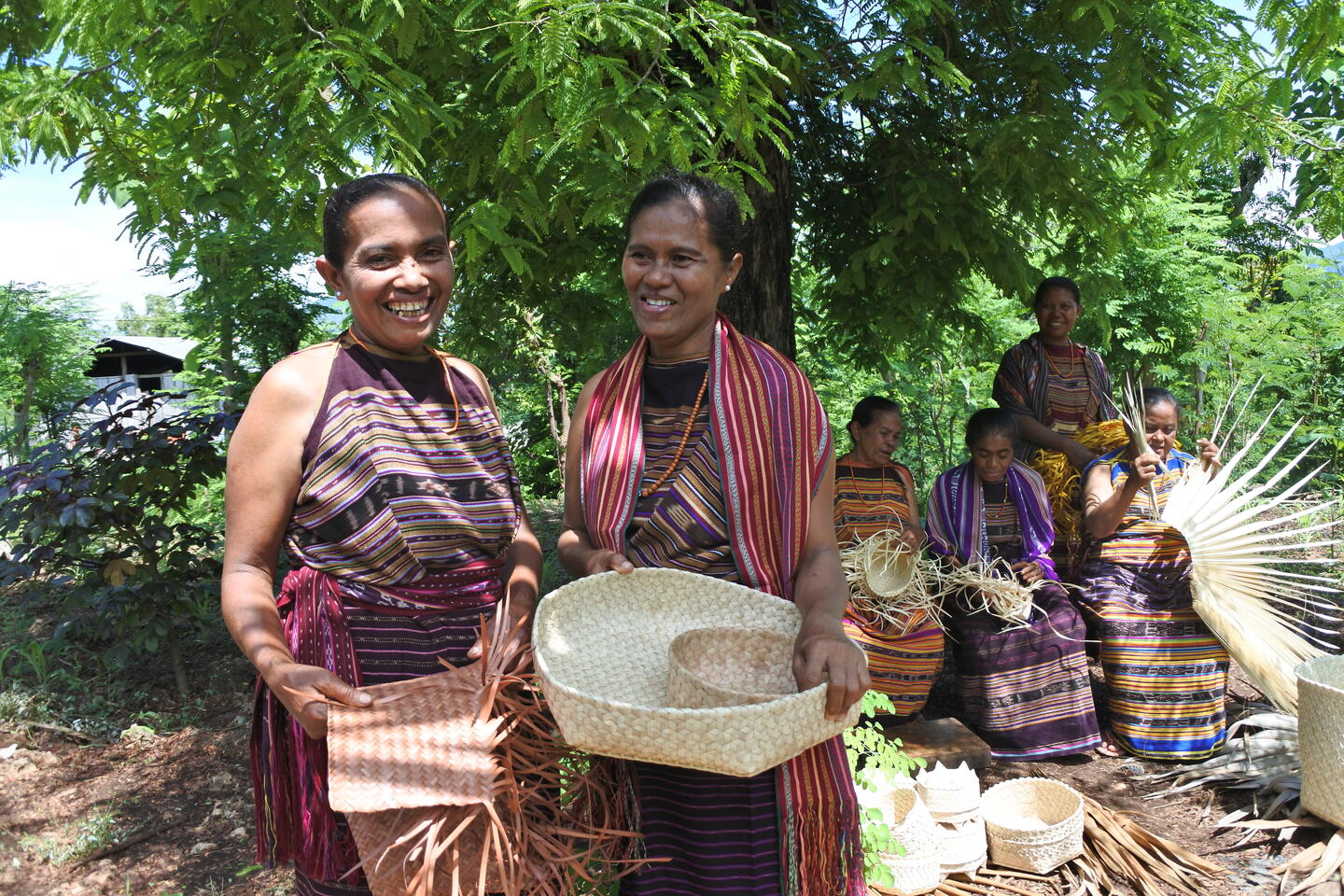
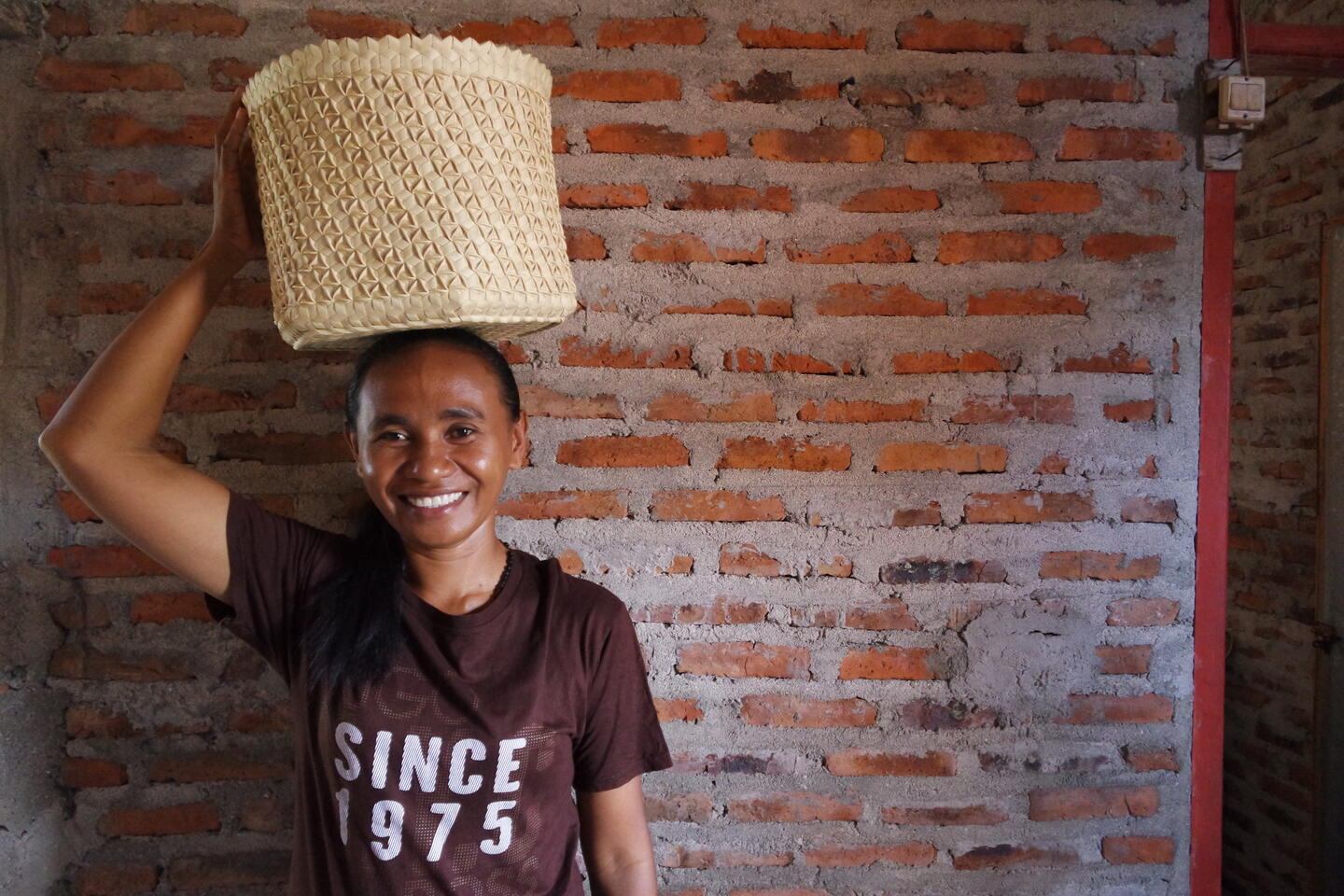
COVID-19 has brought new opportunities: Technology and partners
The COVID-19 pandemic has brought many challenges for businesses around the world in 2020. But for Du Anyam, it also offered two opportunities.
Krealogi is a digital ecosystem that helps artisans grow their business through a mobile app. The enterprise started using it to document production, payments, and operations when the business grew rapidly back in 2018.
Last year, Du Anyam started offering this technology to other small businesses and communities so they could digitize their order and inventory management, production planning, and cost tracking.
Moreover, the enterprise is trying to build an ecosystem that includes access to finance, logistics consolidation, markets, and knowledge sharing to empower women communities and small businesses to engage in activities far beyond the remote communities where they live.
This promising future might present a crucial factor in reducing the poverty rate in rural Indonesia.
Du Anyam has benefited of the International Trade Centre’s SheTrades initiative between 2016 and 2018, which is funded by Australian Aid. The company attended the Women’s Business Forum co-organized by SheTrades in Jakarta in 2017. The company also participated in a workshop on digital marketing and e-commerce co-organized by SheTrades in collaboration with Facebook Indonesia in 2017.





